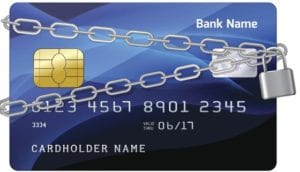It may sound like the setup to a story about common scamming attempts, but sometimes your sister, brother, or loved one really is stuck in another country – say, with a virus the family all worried they would catch traveling internationally. She might call you and ask you to send her money, so she doesn’t have to ask mom for help buying vitamins, food, and medicine while she’s stuck in a hotel quarantine. How will you send it? The answer is wire transfer.
Perhaps you’re already familiar with wire transfers if your experience of American life is recently tied to the immigrant experience. The United Nations reports that one in nine people globally are supported with money remitted back to the home country by migrant workers. Hundreds of billions of dollars travel around the globe in remittances annually according to the International Monetary Fund.
International wire transfer makes it possible, but what exactly is international wire transfer, and how does it work?
What is an international wire transfer?
International wire transfer is the way funds can travel across borders electronically using a system set up by banks and other transfer agencies. The sender must have the amount of money in their own originating account for it to arrive with the recipient.
To ensure that funds are not being laundered or sent to terrorist organizations, the Office of Foreign Assets Control keeps an eye on this process.
Our Wire Transfer Certification guides you through learning about the payments foundation for wire transfers, acclimating you to wire transfer fundamentals.
How are international wire transfers processed?
International wire transfers cost money, and the sender often foots the bill. They must possess both the money being sent and the money to pay for the transfer in their account before requesting their bank or financial institution (think Western Union) help facilitate the movement of money to a recipient located in hundreds of countries around the world. Exceptions to this worldwide network of receiving locations include countries which are sanctioned by the country in which the transfer originates.
Wire transfer can be sent either in the currency of the originating country for conversion into the local currency with the bank or institution where it is received, or they can be sent in a foreign currency from the start.
Transfers are not instantaneous. Instead, they may take up to two days to arrive. Once the transfer is settled through the international clearing house, the recipient bank will move its reserve funds into the recipient’s account and settle with the sending bank later. Funds do not need to move from accounts at the same bank, but can move from one bank to another.
Other information required for a wire transfer includes the reason for the transfer, a recipient’s name and contact information, their receiving bank’s contact information, their own bank account number and branch, and a bank identifying number.
Wire transfers can be initiated at bank branches, over the phone, or online.
Learn about the entities responsible for regulating and settling the transfers, and rules and regulations governing the wire function through our Wire Transfer certification at Noggin Guru.
Challenges Faced by Banks in International Wire Transfers
Banks face a few challenges in international wire transfer including costs, speed, security, and compliance. When it comes to costs, sending payments across borders can pose a challenge for banks who must find a way to keep their fees and rates low while providing a service with many middle men who will ask for a part of that fee. Keeping their services fast is another challenge in an age of quickly modernizing and evolving fintech and credit cards. When consumers can send money using a social peer-to-peer app, a bank-led wire transfer will need to find ways to get ahead of the curve to remain relevant and profitable. The exchange in speed for security may be one case to make, but fraud risk and ways to mitigate this risk pose their own banking challenges to investigate. Compliance with legal and security systems in various jurisdictions should be carefully maintained to encourage trust in the system.
Solutions to International Wire Transfer Issues
Banking professionals are invited to explore our certification on international wire transfer to gain mastery over the workings of the system, current issues, and helpful solutions to challenges presented. Best practices are outlined and inspected, including those for conducting risk assessments and identifying high risk threats. Banks have audited themselves and taken action on their findings. We dedicate an entire session to this in our certification and another to legal and compliance considerations. We not only discuss specific laws and regulations applicable to wire transfer, we also include a policy and procedures workshop. Not least, our Noggin Guru Wire Transfer credential touches on fraud trends.








